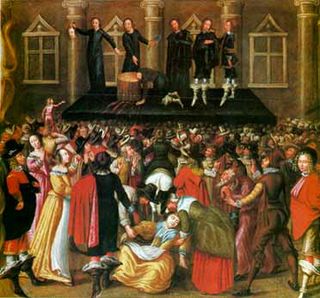 Opening:
Opening: As usual, I would like you to take a moment to review the Georgia Performance Standards, Essential Questions, and Key Terms to get an idea of what this unit will address:
ELA11w2.2.k The student uses language, point of view, characterization, style, and related elements effectively for specific rhetorical and aesthetic purposes.
ELAALRL3.1.a.ii The student relates a literary work to the seminal ideas of the time in which it is set or the time of its composition.
Essential Questions:
- How do speakers and authors use reason as a persuasive tool? Can you think of any modern examples?
- What is the difference between emotion and reason?
- To what extent are we in controll of our own lives?
Key Terms:
- The Age of Reason / Rationalism
On your Blog:
1. After reviewing the standards, essential questions, and key terms, what are your expectations for this unit? You may also choose to respond by providing answers to the essential questions. Most answers should provide some discussion about the differences between emotion and reason.
Mini-Lesson:
Why did Ben Franklin fly a kite in a lightning storm? Because he wanted to have an explanation for what lightning was; he didn't accept the Puritan notion that God was responsible for everything, and people were not supposed to concern themselves with such things. This was the prevailing idea of the 18th century (the 1700s) in America, sometimes called the
Age of Reason, or the
Age of Rationalism.
This philosophy started in Europe almost one hundred years before it became popular in America. You probably recognize names like Sir Isaac Newton, who used science instead of religion to explain gravity. Like Newton, Rationalists in America wanted to achieve order and explaination of the natural through science. People sought to become more educated in Mathematics, Astronomy, Botany, and Biology. Collecting fossils and plants, and peering into microscopes and telescopes became much more popular than studying the scripture.
It was during this time that many people's notion of God changed from the vengeful God in Johnathan Edwards'
Sinners in the Hands of an Angry God, to a more humanitarian God. A popular religious movement of the time was
Deism, which was a body of ideas that did not revolve around a church itself. It was a faith based on science and mathematics. Deists believed in God, but not as a power that controlled everything. They believed that God created the universe, but left it up to the people to figure out how to work it, or to figure out the natural laws.
Rationalist Men and Women also believed that human society was run by natural law. If people were able to discover and understand these laws, they would be able to improve their lives. While improvement was important to the Puritans, they pleaded with God for it, and the rationalists believed they could take a scientific approach to self-imporvement.
A Rationalist would believe that anything could be understood through science. Puritans thought this to be an insult to God since they believed humans had no business deconstructing God’s work. Think of the on-going debate over the theory of evolution, and you will have a pretty good picture of how the Puritans and the Rationalists differed.
Many of the doucments upon which our country was founded were penned by Rationalists. For instance,
The Declaration of Independence makes reference to
certain unalienable rights that everyone had. Puritans would have believed that God decided who had certain rights, and that some people did not have as many as others. It is interesting to see
what happened to the men who signed the declaration.
Work Period:
2. Briefly
(one good paragraph) describe the differences between the Puritans and the Rationalists. Please be careful not to repeat the same words you have read in this entry. Where in today's society do you see some of the ideas you have read about here represented?. (Hint --
check this out, especially the comments section.)
3. Read this excerpt from
The Autobiography by Benjamin Franklin:
Pay special attention to the efforts Franklin made to improve his life. Once you are finished reading, repond to the following (about a paragraph):
Explain what Franklin's purpose in writng this must have been. How is he using reason instead of emotion to meet his purpose? You may want to take it a step further by comparing the way Franklin writes (reason) to some of the more emotional strategies in the last unit (Edwards and Equiano). Show me some evidence to support what you claim.
4. If you were to make a list of thirteen virtues to improve upon in your life, what would they be? List them the way Franklin did. There are a couple more good examples
here. Do you think you could reach moral perfection in this way? Explain how you feel.
This should be a paragraph or two.
5. Read over this page that contains some of Benjamin Franklin's aphorisms (witty sayings that deliver some sort advice):
http://www.notable-quotes.com/f/franklin_benjamin.html . Copy one of these aphorisms, and then write a short response that exaplains why this one stuck out to you, and then explain how it illustrates rationalism (The Age of Reason).
6.
you can also choose to listen to the speech here:
When you are through with the speech, consider the following and then respond on your blog:
You should already know that Patrick Henry is using reason over emotion to persuade his audience to agree with him. My questions are these:
- What is he attempting to pursuade his audience to do?
- What rational (based in fact) evidence does he provide to support his argument?
Closing:
Take a moment to evaluate your own work. You should be able to identify the places where I am likely to send you back to improve areas of your work. Review what you wrote for #1 in the opening, and then explain how you have addressed the standards for this unit. You may also choose to provide answers to the essential questions if this unit has allowed you to formulate reponses to these.
Once you are comfortable with everything you have done here, leave me a comment so I can begin enjoying your work.







 Opening:
Opening:










